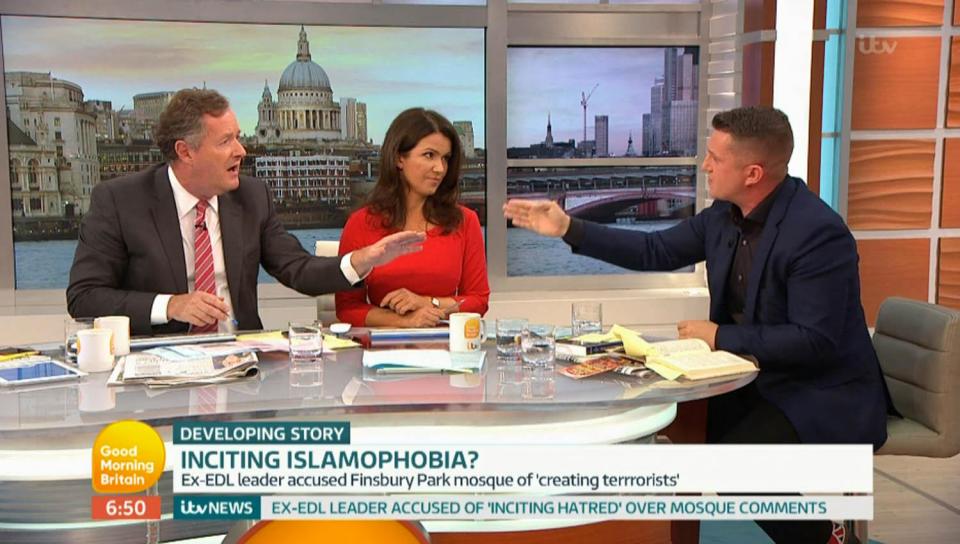 Joelle Eid is an MSc Media and Communications student at LSE. Prior to that, she acted as spokesperson for the World food Programme and the United Nations High Commissioner for Refugees in Lebanon and Jordan, covering the Syria crisis. Follow her on Twitter @joelleeid & Instagram @joweid
Joelle Eid is an MSc Media and Communications student at LSE. Prior to that, she acted as spokesperson for the World food Programme and the United Nations High Commissioner for Refugees in Lebanon and Jordan, covering the Syria crisis. Follow her on Twitter @joelleeid & Instagram @joweid
If it happened in my backyard, could it suddenly feel like it didn’t?
Wake up at a reasonable hour and rush to get to the station. On the way there, walk fast to blend in but remind yourself that had you woken up 15 minutes earlier, you would have had the time to make it to that famous bagel place on Brick Lane. Never mind, focus. Fight your way through the beehive and hop on the first central line heading west. Wait four stops. Four, Joelle then get off. Do not under any circumstance forget to “mind the gap, between the train and the platform”.
One staircase and escalator later, I already feel victorious. I start walking down a shiny enclave of coffee shops and bistros that lead to the LSE. At that moment, provided I don’t need to run to make it to class, everything looks perfect.
Pause.
A little over two months ago, from where I was standing, my world looked far less cosmopolitan and yes, a little more real. My wardrobe certainly did not have to be this sophisticated. But let’s go back a little further.
In 2011, came a war that changed everything and everyone around me. A war that would soon after be labeled the most brutal human-made tragedies of the 21st century. The summer of that year, my journey with the Syria crisis began. As a spokesperson for the UN Refugee agency and more recently the World Food Programme, I had one arduous central task: communicate the human story. The truth is, I don’t think I met anyone without a story, be it in the refugee camps of Jordan, the now densely-populated slums of Beirut or the refugee transit sites on the Turkish-Syrian border. Everyone had one. I remember each and every face, sound and smell like I remember the tiny wrinkles on my mother’s face.

Fast forward again.
Almost 3,000 miles later, on my first week in London, the images and sounds slowly begin drifting away. I see a few headlines here and there and notice the dozens of seminars around the migrant and refugee crisis being advertised around London campuses. I don’t feel concerned and I barely have anything to say. It’s as if the last four years never happened. Except that they did.
Back in the Middle East, I never understood why the world was not pugnaciously revolting against the images, sounds and stories of that war. Humanitarian communicators, journalists, photographers, broadcasters and activists were working around the clock to make sure the world knows. Surely, we thought, the world was able to see the news from Syria. Shouldn’t an event that occurs in the distance feel closer, 250,000 human lost lives or five million displacement stories later?
Let’s try this. My country, Lebanon, is half the size of Wales and is today home to close to over one million refugees from Syria. Divide Wales in half and ask yourself for a second: what if one million people looking for safety, food and a warm bed walked in? Would everyone in the Madagascar or in Ecuador be reminded and bothered with the Wales refugee crisis, a month later? Maybe. How about a year later, or four?
I feel terrible not knowing the answers to those questions. I feel even worse when my gut instinctively says no.

Syria is today a nation on the move. People who once had normal lives like you and me are selling everything they own for a way out. A way out of their besieged village inside their war-ravaged country, out of their daunting refugee lives in Iraq, Egypt, Lebanon, Jordan and Turkey, out of anything that is mainland, out of that boat and out of the way of anyone who thinks the right to flee is not theirs.
If I think about it, I am as much part of that crisis now as I was two months ago. I breathed it and made my worst and best memories through it and if I, of all people were able to reach that feeling of disconnect, I would indeed have no right to blame the rest of the world.
To make sure I don’t and as soon as that feeling of guilt begins to override me, I go online. To the Syria special video reports of the BBC, the print pieces of the Guardian and the Washington Post, the World Food Programme’s MENA twitter feed, to former WFP and UNHCR colleagues and journalists’ Facebook pages.
That is when the tragedy that is this war comes back to life again. Even as I struggle to wake up to my alarm, as I get on the tube, as I stroll down beautiful Houghton Street and as I sit in class. Sometimes when I least expect it.
It is, as ever, real.
@joweid
Further reading:
Refugee crisis: how can I help? – Guardian
Refugees take charge of Danish newspaper for a day– Guardian
Like the Syrians, I fled my country. Here’s what you don’t understand about refugees– Washington Post
A refugee family, a song and a moment of hope – Reportedly
These Instagram Accounts Are Documenting The Refugee Crisis – HuffPo
Selfies as a Lifeline for Refugees– Time Magazine Lightbox
The top Google searches in Syria– Al Jazeera






